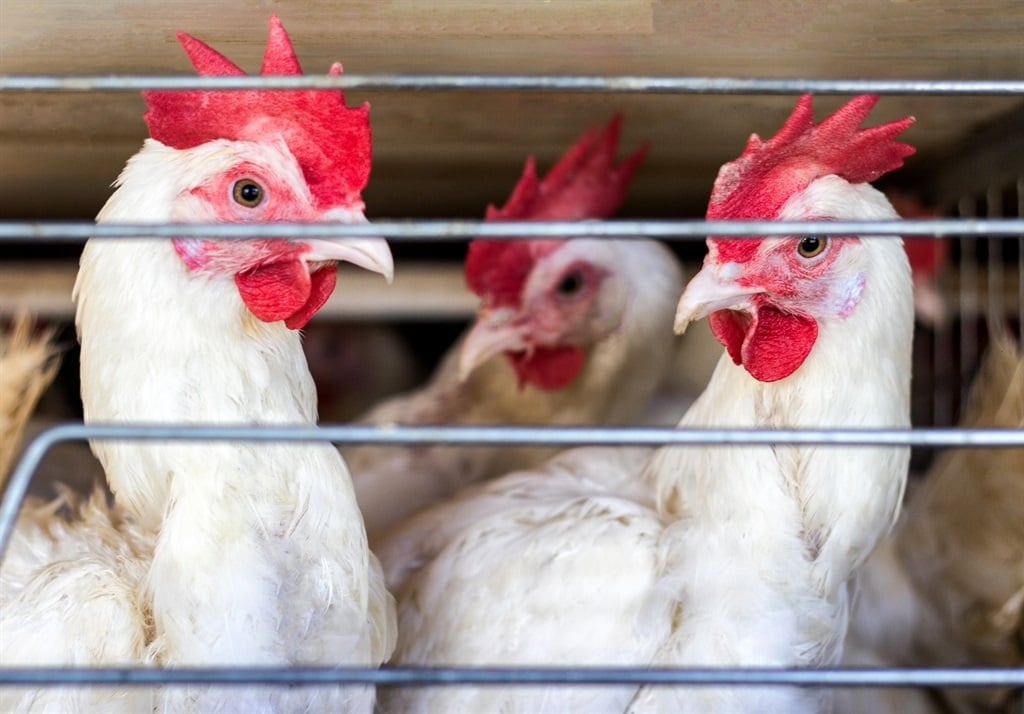
The ongoing load shedding and power disruptions have put tremendous pressure and additional costs on the poultry industry, which makes producing poultry products extremely expensive. One company (Astral Foods) has spent an additional R919 million as a result of load shedding alone. This has obviously had a significant impact on the profitability and sustainability of the company.
Now, to make matters worse, the local poultry industry has been hit with a major avian influenza epidemic.
This is a devastating disease of poultry and can wipe out a flock in just a few days. AI is the most widely studied disease, as it has been causing major problems in poultry industries around the world for many years.
Reluctance to vaccinate
In the past (five to 10 years ago), AI was pretty much the only serious poultry disease, which South Africa did not have. There have been cases of what is called low pathogenic AI in ostriches for some time.
However, the commercial poultry industry was, for a long time, free of the highly pathogenic strain of the virus. This is now, unfortunately, no longer the case.
READ: Eggless bacon and eggs breakfasts are on the horizon, as bird flu threatens supply
In the past, veterinary services were reluctant to allow vaccination of poultry in South Africa against AI. Most of the major international vaccine manufacturers have highly effective vaccines against AI, which are widely used in many countries where AI has become prevalent.
There were two reasons for this reluctance to allow vaccination against AI. Firstly, there is a well-organised and run surveillance system in place for AI in South Africa.
The basis of this monitoring programme is routinely looking for antibodies against AI in commercial poultry. This surveillance system is only possible if the birds are not vaccinated.
The control policy in the past was a “stamping-out” policy. In other words, when AI is detected in a flock, the flock is destroyed. Secondly, AI has not been a major problem in South Africa in the past and the previous outbreaks were successfully controlled with the stamping-out policy which was in place. Previous AI outbreaks were successfully controlled.
The broiler birds are the meat birds. To maintain the supply of both meat and eggs, there is a complex system of breeder birds. These breeder birds are genetic line birds and play a critical role in keeping the market supplied with poultry products.
If (and when) these breeder birds contract AI, they will die (either from the virus infection or from the control efforts). When this happens, the constant supply of hatching eggs needed to keep the layer and broiler farmers supplied with chickens to meet the constant demand for poultry products will be gone. In other words, there will be a major shortage of poultry. As poultry is the most affordable source of protein, this will cause major food shortages and additional hunger problems.
Antibodies vs viruses
There are efforts to now import vaccines against AI. This will assist with the control of the disease in the long term, but will, unfortunately, not do much to control the current problem in the short term.
The reason for this is that it takes time for vaccinated birds to develop antibodies against the virus. As soon as the birds are vaccinated, their immune system will start to make antibodies. Only when there are enough antibodies, will the birds be protected. It can take up to two weeks to get sufficient antibodies.
READ: Brazil's bird flu scare a danger for SA's poultry industry and low income families'
Even then, if there is too much virus in the field, the immune response of the birds can still be overwhelmed. In simple terms, if the bird has a number of antibodies (let’s use an understandable number to explain) of 10 antibodies and there are nine viruses, the antibodies win and the birds are safe.
If there are 10 antibodies, but 11 viruses – the viruses win and the birds die. Obviously, these numbers are not the real numbers and are just used as an explanation.
The only short-term option for control of AI in the current situation is good biosecurity. It is essential that good biosecurity is in place on the poultry farms. Only high-quality, registered disinfectants must be used for the biosecurity efforts. The ideal product would be one which is non-toxic to the birds and can be used to continually reduce the levels of viruses in the flocks.
Until the vaccination programme can take effect, the only control option is a full continual disinfection programme, which would include using the disinfectant in the drinking water, provided that the product is registered for this application and also regularly spraying the birds – again only if the product is registered for this application.
The registration of a product ensures that the label claims can be substantiated and there is valid scientific evidence to support the claims made by the producers of the product.
It may even become very difficult for large poultry companies to survive the current crisis. In order to meet the demand for poultry products, South Africa will most likely become even more reliant on imported poultry products, which is another bone of contention.
* Prof Bragg is from the Veterinary Biotechnology in the Department of Microbiology and Biochemistry, University of the Free State.




 Publications
Publications
 Partners
Partners









